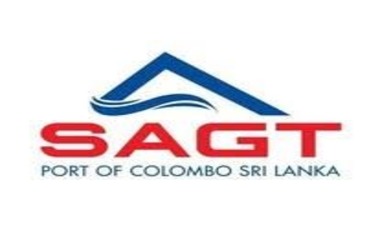
It is the first terminal in Sri Lanka to implement blockchain technology to digitize trade processing.
Maersk stated that the partnership will assist SAGT to renounce slack manual physical (paper) documentation processing. SAGT is a crucial link in carrying out worldwide trade and it yearly handles over two million twenty foot containers.
The embedding of TradeLens platform into its functions is anticipated to assist digitizing records and simplify the info inflow from the worldwide supply chain ecosystem.
The terminal will simplify the process of documenting data relevant to shippers, ports, shipping lines and other third parties who are participating in the supply chain.
By ensuring better transparency into container movement, TradeLens intends to enhance operational capability of the container terminal.
To that extent, Bimal Kanal, Head of TradeLens, South Asia said “Our ambition is to have all stakeholders including shippers, shipping lines, ports, banks, custom authorities and so on, involved in the global supply chain to be on a common platform that will benefit the entire industry.”
In a matter of two years within launch, TradeLens has inked agreements with several container terminals and port operators across the globe. Adani ports, the largest multi-port operator of India, and Special Economic Zone Limited became a member of the TradeLens platform in May.
Earlier this January, Port of Salalah, largest Omanian port, joined TradeLens. Last December, TradeLens also signed an agreement with the key Asian shipment terminal Cái Mép International Terminal to digitize trade processing.